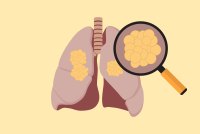Latest KFF Health News Stories
In North Carolina, More People Are Training to Support Patients Through an Abortion
In the months since Roe v. Wade was overturned, training groups in North Carolina have seen an uptick in interest from people wanting to become abortion doulas.
Siete preguntas que una persona mayor debe hacer antes de someterse a una cirugía compleja
En muchos casos, la cirugía puede salvar la vida del paciente o mejorar su calidad de vida. Pero la edad avanzada los expone a un mayor riesgo de resultados no deseados, como dificultades en las actividades cotidianas, hospitalizaciones prolongadas, problemas de movilidad y pérdida de independencia.
Weighing Risks of a Major Surgery: 7 Questions Older Americans Should Ask Their Surgeon
How do older adults know when the potential benefits from surgery are worth the risks? And what questions should they ask as they try to figure this out? Our columnist asks experts for guidance.
Why Medicaid Expansion Ballots May Hit a Dead End After a Fleeting Victory in South Dakota
Since 2017, Medicaid expansion has been adopted in seven states where a question was placed directly on the ballot. But campaign leaders say that strategy may not work in Florida and Wyoming, where Republican opposition remains strong.
In Rural America, Deadly Costs of Opioids Outweigh the Dollars Tagged to Address Them
Some people say it’s reasonable for densely populated areas to receive more settlement funds, since they serve more of those affected. But others worry this overlooks rural communities disproportionately harmed by opioid addiction.
KHN Investigation: The System Feds Rely On to Stop Repeat Health Fraud Is Broken
A months-long KHN examination of the system meant to bar fraudsters from Medicaid, Medicare, and other federal health programs found gaping holes and expansive gray areas through which banned individuals slip to repeatedly bilk taxpayer-funded programs.
Racial Disparities in Lung Cancer Start With Research
Improving lung cancer outcomes in Black communities will take more than lowering the screening age, experts say. Disparities are present in everything from the studies that inform when people should get checked to the availability of care in rural areas.
An Unexplained Injury Discovered After Eye Surgery. What Should Happen Next?
Some doctors and medical practices voluntarily give rebates on a bill if an injury occurs during a procedure, while others will not, an expert says. Here’s how patients can respond.
Schools, Sheriffs, and Syringes: State Plans Vary for Spending $26B in Opioid Settlement Funds
The cash represents an unprecedented opportunity to derail the opioid epidemic, but with countless groups advocating for their share of the pie, the impact could depend heavily on geography and politics.
How Banks and Private Equity Cash In When Patients Can’t Pay Their Medical Bills
Hospitals strike deals with financing companies, generating profits for lenders, and more debt for patients.
Cómo el optimismo puede cerrar la brecha de cobertura de Medicaid
Más de 2 millones de personas de bajos ingresos, la mitad de ellos en Florida y Texas, no tienen seguro porque están atrapados en una brecha de cobertura. Y sus estados no han expandido Medicaid.
How Optimism Can Close the Medicaid Coverage Gap
Low-income residents in states that haven’t expanded Medicaid are in a tough spot: They don’t qualify for the subsidies that people with slightly higher incomes get to buy marketplace plans because of a glitch in the federal health law. But a court decision last year makes it easier for them to make good-faith estimates of a pay increase, and there is no financial penalty if they don’t hit that figure.
Private equity firms have shelled out almost $1 trillion to acquire nearly 8,000 health care businesses, in deals almost always hidden from federal regulators. The result: higher prices, lawsuits, and complaints about care.
Thousands of Experts Hired to Aid Public Health Departments Are Losing Their Jobs
As the covid-19 pandemic raged, an independent nonprofit tied to the Centers for Disease Control and Prevention hired an army of seasoned professionals to fill the gaps in the country’s public health system. Now, the money has largely run out, and state and local health departments are again without their expertise.
Abortion Issue Helps Limit Democrats’ Losses in Midterms
Although control of Congress was still undecided Wednesday, Republicans seemed poised to take power in the House, while the fate of the Senate remained too close to call. Economic issues were at the top of voters’ minds, but abortion access also played a large role in their decisions.
“Cuarto trimestre”: período clave para prevenir las muertes maternas
La mayoría de las muertes maternas, hasta un 84%, podrían prevenirse, revela un nuevo análisis de los Centros para el Control y la Prevención de Enmfermedades.
‘Fourth Trimester’ Focus Is Pushed to Prevent Maternal Deaths
Public health investigators found that 53% of maternal deaths happened well after a mother left the hospital — from seven days to a year after the birth.
Hospitals Said They Lost Money on Medicare Patients. Some Made Millions, a State Report Finds.
A North Carolina state treasurer’s report found hospitals give conflicting information about whether they profit from Medicare patients. Experts said the findings are significant because they suggest the federal government has failed to closely watch the billions of dollars in tax breaks that nonprofit hospitals have received.
Baby, That Bill Is High: Private Equity ‘Gambit’ Squeezes Excessive ER Charges From Routine Births
Hospitals, boosted by private equity-backed staffing companies, have embraced a new idea: the obstetrics emergency department. Often, it is just a triage room in the labor-and-delivery area, but it bills like the main emergency department.
As Giant Hospitals Get Bigger, an Independent Doctor Feels the Pinch
Independent medical practices keep closing as doctors join behemoth hospital groups or leave the field. Research suggests that’s bad news for patients. Studies repeatedly conclude that consolidation in the health care industry is driving up costs while showing no clear evidence of improved care.























